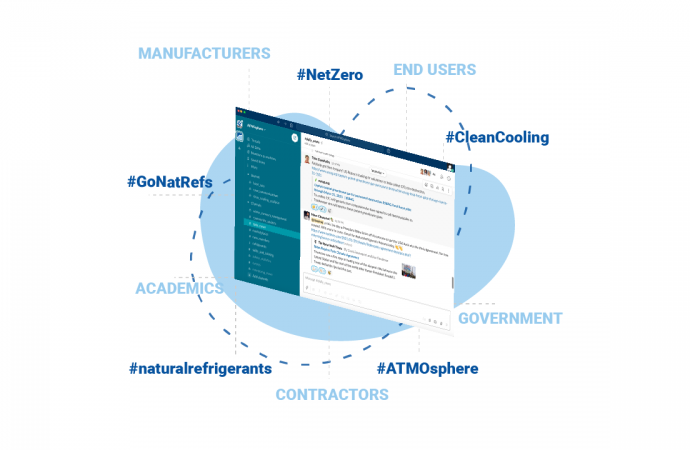At the ATMOsphere Asia 2014 conference on natural refrigerants held in Tokyo, Japan, on 3-5 February, it was demonstrated by system manufacturer Panasonic and Japanese retailer Lawson that energy savings between 10-21% are achieved for a CO2 transcritical system in the subtropical climate of Okinawa, Japan. In early 2014, Indonesia will see the opening of the first pilot CO2 transcritical store by Lawson as well as an installation of Mayekawa’s NH3/CO2

The results from trial CO2 transcritical installations in the subtropical climate of Okinawa show that substantial energy savings can be achieved compared to traditional HFC technology, giving system manufacturers and retailers encouragement to further optimise and deploy CO2 systems in the warm and humid climates of Asia.
Lawson’s CO2 store in subtropical Okinawa achieves 21% energy savings
Experience with a CO2 system in the subtropical climate of Okinawa was shared by Shinichirou Uto who heads the Construction Planning Department at Lawson, the leading retailer for the number of CO2 transcritical refrigeration systems in Japan. With the aim of demonstrating the performance of CO2 in warm and humid climates, Lawson installed a trial system in Japan’s southernmost island of Okinawa, which showed energy savings of 21% compared to equivalent equipment based on the conventional refrigerant R404A, according to data measured in December 2012. With the annual power consumption of the CO2 system measured at 63,801 kWh (compared to 80,605 kWh of the R404A system), the energy savings translate into an annual cut of 235,256 JPY (around €1,708) on the energy bill.
The annual energy savings with the CO2 system measured in subtropical Okinawa are only slightly lower than the national average, measured at 27%. In terms of the technologies used in order to achieve these energy savings, the split cycle is deployed.
Panasonic measures 10% energy savings in Okinawa convenience store
The data measured by Panasonic in a CO2 transcritical convenience store in Okinawa shows a 10% energy savings with an annual average temperature of 23.6 ˚C. While this is lower than the energy savings measured in the same region by Lawson, Gaku Shimada, advisor within the Corporate Planning Group of the Air-Conditioner Division at Panasonic Corporation, explained that their measurements were done in 2013 when they experienced a very hot summer in Okinawa. “This gave us support that CO2 can perform better than HFCs if the system is designed for CO2,” he pointed out.
While recognising the success of CO2 transcritical refrigeration in Europe, Shimada sees that there is a role for Japanese companies to develop the systems further to accommodate to specific conditions in the Asian region. “We can learn from European cases, but our responsibility is to develop a CO2 system that latches hot and humid climate of Asia,” he said.
39% energy savings expected in Lawson’s CO2 pilot store in Indonesia
A simulation performed by Lawson shows energy savings with CO2 systems of 39% in tropical Indonesia compared to the current state-of-the-art R22 technology.
Uto from Lawson announced that with the support of the Japan’s Ministry of Economy, Trade and Industry (METI), the retailer is opening the first pilot CO2 transcritical store in Peta Barat in Jakarta, Indonesia, on 7 February. This store will provide the retailer with a lot of useful experience and data on energy consumption of CO2 systems in tropical climates. Uto pointed out that the introduction of CO2 in warmer climates by Lawson and other retailers could provide a double-dividend, bringing the costs down while being friendly to the environment at the same time.
Mayekawa’s NH3/CO2 NewTon to be installed in Indonesia
Another example of natural refrigerant installation in warm climates was outlined by Hideyo Asano, General Manager of the NewTon Production Division at Mayekawa. With the funding support of the Japanese Ministry of Environment (MOE) under the Joint Crediting Mechanism (JCM), the first NewTon installation in Indonesia will be completed in a cold store operated by P.T. ADIB Global Food Supplies in March 2014. The expected reduction in annual energy consumption is 570,000 kWh.
Lawson’s CO2 store in subtropical Okinawa achieves 21% energy savings
Experience with a CO2 system in the subtropical climate of Okinawa was shared by Shinichirou Uto who heads the Construction Planning Department at Lawson, the leading retailer for the number of CO2 transcritical refrigeration systems in Japan. With the aim of demonstrating the performance of CO2 in warm and humid climates, Lawson installed a trial system in Japan’s southernmost island of Okinawa, which showed energy savings of 21% compared to equivalent equipment based on the conventional refrigerant R404A, according to data measured in December 2012. With the annual power consumption of the CO2 system measured at 63,801 kWh (compared to 80,605 kWh of the R404A system), the energy savings translate into an annual cut of 235,256 JPY (around €1,708) on the energy bill.
The annual energy savings with the CO2 system measured in subtropical Okinawa are only slightly lower than the national average, measured at 27%. In terms of the technologies used in order to achieve these energy savings, the split cycle is deployed.
Panasonic measures 10% energy savings in Okinawa convenience store
The data measured by Panasonic in a CO2 transcritical convenience store in Okinawa shows a 10% energy savings with an annual average temperature of 23.6 ˚C. While this is lower than the energy savings measured in the same region by Lawson, Gaku Shimada, advisor within the Corporate Planning Group of the Air-Conditioner Division at Panasonic Corporation, explained that their measurements were done in 2013 when they experienced a very hot summer in Okinawa. “This gave us support that CO2 can perform better than HFCs if the system is designed for CO2,” he pointed out.
While recognising the success of CO2 transcritical refrigeration in Europe, Shimada sees that there is a role for Japanese companies to develop the systems further to accommodate to specific conditions in the Asian region. “We can learn from European cases, but our responsibility is to develop a CO2 system that latches hot and humid climate of Asia,” he said.
39% energy savings expected in Lawson’s CO2 pilot store in Indonesia
A simulation performed by Lawson shows energy savings with CO2 systems of 39% in tropical Indonesia compared to the current state-of-the-art R22 technology.
Uto from Lawson announced that with the support of the Japan’s Ministry of Economy, Trade and Industry (METI), the retailer is opening the first pilot CO2 transcritical store in Peta Barat in Jakarta, Indonesia, on 7 February. This store will provide the retailer with a lot of useful experience and data on energy consumption of CO2 systems in tropical climates. Uto pointed out that the introduction of CO2 in warmer climates by Lawson and other retailers could provide a double-dividend, bringing the costs down while being friendly to the environment at the same time.
Mayekawa’s NH3/CO2 NewTon to be installed in Indonesia
Another example of natural refrigerant installation in warm climates was outlined by Hideyo Asano, General Manager of the NewTon Production Division at Mayekawa. With the funding support of the Japanese Ministry of Environment (MOE) under the Joint Crediting Mechanism (JCM), the first NewTon installation in Indonesia will be completed in a cold store operated by P.T. ADIB Global Food Supplies in March 2014. The expected reduction in annual energy consumption is 570,000 kWh.
MORE INFORMATION
Related stories


